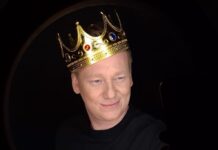| Capital: | € 5 million |
|---|---|
| Age: | 65 |
| Born: | October 18, 1926 |
| Died: | 11/23/1991 |
| Country of origin: | Germany |
| Source of wealth: | actor |
| Last updated: | 2024 |
Short introduction
It is difficult to determine in retrospect how large Klaus Kinski’s assets were during his lifetime. What is certain is that Kinski enjoyed international fame as an actor and lived a life of luxury.
In his films, Kinski usually played the role of the driven, psychopathic villain, which he fulfilled in an inimitable way. Kinski also presented himself to the public as an enfant terrible of bourgeois society.
If you look at Kinski’s private life, it becomes clear that it was more than self-marketing. Outbreaks of violence, drugs and sex excesses run like a thread through Kinski’s biography.
Early life
There is hardly an actor with more rumors circulating about his life than Klaus Kinski. One reason for this are Kinski’s statements, which often contradict those of their companions.
What is certain is that Kinski grew up in Berlin as the son of a pharmacist. The claim that he grew up in very poor conditions contradicts the statements of his older brothers.
There is also a certain lack of clarity about Kinski’s time with the Wehrmacht. It has been proven that he was captured by the British in 1944 as part of a paratrooper unit on the Western Front. On the other hand, Kinski’s claim that he had deserted and was sentenced to death for desertion is questionable.
Again, there is uniqueness with regard to his first experiences as an actor, which he had in the POW camp in England. There he performed on the makeshift warehouse stage.
Career
After returning to Germany, Kinski managed to become part of the ensemble of the Berlin Schlosspark Theater despite lacking acting training. However, he was soon released due to an outbreak of anger.
In 1947 Kinski was in front of the camera for the film “Morituri” for the first time. The story of concentration camp inmates fleeing the Germans brought him threatening letters so shortly after the war.
At the beginning of the 1950s, Kinski was in psychiatric treatment for the first time after harassing and assaulting an acquaintance. A psychosis was diagnosed, which was to be manifested in repeated attacks and suicide attempts throughout his life.
After the short break, Kinski toured Germany and Austria with a solo stage program. He recited the texts of well-known writers in an inimitably expressive manner.
This was followed by appearances in the famous Edgar Wallace films, which made him known to the general public. Internationally, he first attracted attention in “Doktor Schiwago” (1965).
In the late 1960s, he first played the bad guys in a series of spaghetti westerns. In the early 1970s, Kinski first worked with the famous German director Werner Herzog, with whom he made five of his most successful films, including “Aguirre, God’s Wrath” (1972) and “Fitzcarraldo” (1982).
The films with Werner Herzog make it clear that Kinski developed an increasingly greater artistic standard towards the end of his career. In his last film “Kinski Paganini” (1989) Kinski also deals with high culture. The story of the legendary Italian violinist Paganini inspired him not only to play the leading role, but also to write the script and take over the direction.
Career highlights
The highlight in Kinski’s career was the film “Aguirre or God’s Wrath”. (1972) In addition to the fact that film critics still call “Aguirre” one of the best hundred films of all time, Kinski was able to emancipate himself from the Edgar Wallace films and the spaghetti westerns for the first time, despite their popularity were simply knitted.
Famous quotes
“Making films means money. Money means buying yourself out of slavery. So I keep going. ”
“I realized a long time ago that I couldn’t choose the films, especially since I always need money. It is also not worth choosing them. One is like the other, and all together are not worth it. What else can I do but make the best of this garbage? ”
“Yes, I have violence in me, but not a negative one. […] My violence is the violence of the free who refuses to submit. ”
“It is difficult for me to imagine how the worms will eat me up. I never think of death. I didn’t even really start living. ”
Amazing facts
When he made his first appearances on the improvised stage in the prisoner of war camp in Essex, Kinski played mainly female roles
In 1971, Kinski planned to tour Germany as the “Jesus Christ Redeemer”. Significantly, the tour was canceled after the first scandalous appearance
In 1980, Kinski declined to work on Steven Spielberg’s later hit movie “Hunter of the Lost Treasure” saying that the script was a “boring, idiotic heap of dirt.”














